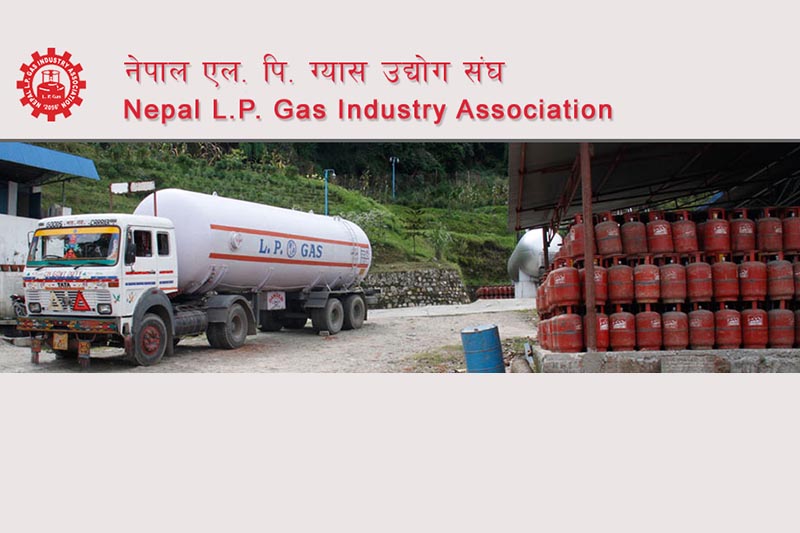Bottlers warn to halt LPG supply from March 1
Kathmandu, February 20
Bottlers of Liquefied Petroleum Gas (LPG), commonly known as cooking gas, have announced a series of programmes to protest the “government’s inability” to resolve problems facing the LPG industry, including failure to substitute Indian LPG bullets with Nepali ones to transport cooking gas from India to Nepal.
The Nepal LPG Industry Association (NLGIA) today held a press conference to condemn the government for failing to facilitate gas bottling plants to acquire ‘non-explosive’ certificate from Indian authorities, which enables LPG bottlers to use their own bullets to transport cooking gas from India to Nepal. The association has also slammed the government for failing to revise the commission on LPG and conduct a study on challenges facing the LPG industry as promised by the Ministry of Industry, Commerce and Supplies (MoICS) in September.
“We will launch series of protest programmes if these concerns are not addressed by March 1,” the NLGIA said.
The LPG bottling plants have warned to begin its protest programme from March 1 by halting collection of LPG product delivery order from Nepal Oil Corporation.
Product delivery orders are required to collect Nepal-bound LPG from Indian Oil Corporation (IOC). Other proposed protest programmes of the NLGIA include completely halting the loading to LPG from all refineries of IOC beginning March 6 and shutting down all LPG bottling plants from March 12.
“The government had promised to conduct a study on contemporary challenges facing the LPG industry and address them gradually five years ago. But it has reneged on its promise. This shows the government is not serious about LPG industry’s concerns,” said NLGIA President Gokul Bhandari.
LPG bottlers, according to Bhandari, have invested billions of rupees to purchase LPG bullets and dozens of such bullets are ready for delivery.
“However, Nepali bottlers have not been able to use these bullets due to lack of non-explosive certificate.
We have repeatedly asked the government to talk to Indian authorities to issue those certificates. But there has been no development,” said Bhandari. “This indifference has put billions worth investment at risk.”
The NLGIA has also demanded that the government raise commission on LPG for both bottlers and distributors. Currently, NOC is providing commission of Rs 30.55 per cylinder to bottlers and Rs 32 per cylinder to distributors. Nepal Oil Corporation, the state-owned petroleum monopoly, said all the issues raised by LPG bottlers are being discussed with the MoICS. “We are aware of their concerns.
Yet bottlers cannot launch protests to disrupt the supply of LPG, an essential commodity,” said NOC Spokesperson Birendra Goit.






